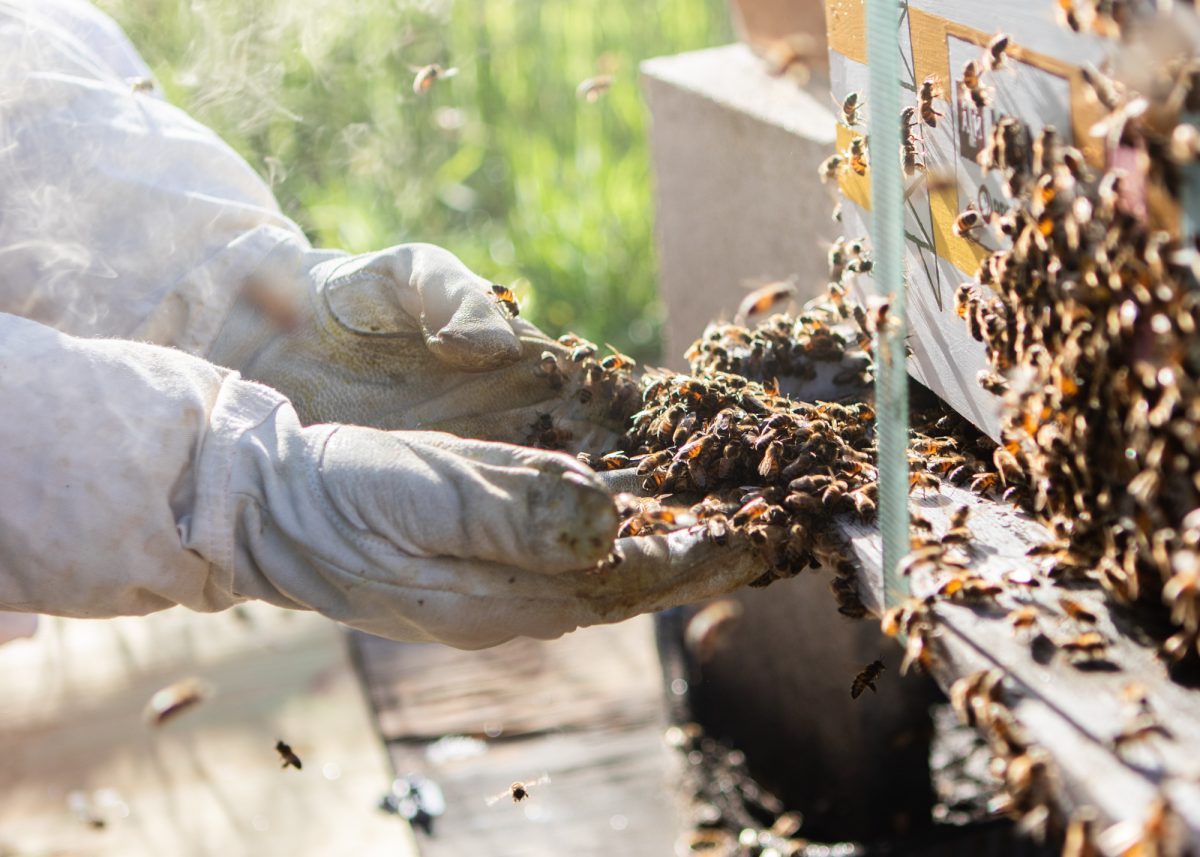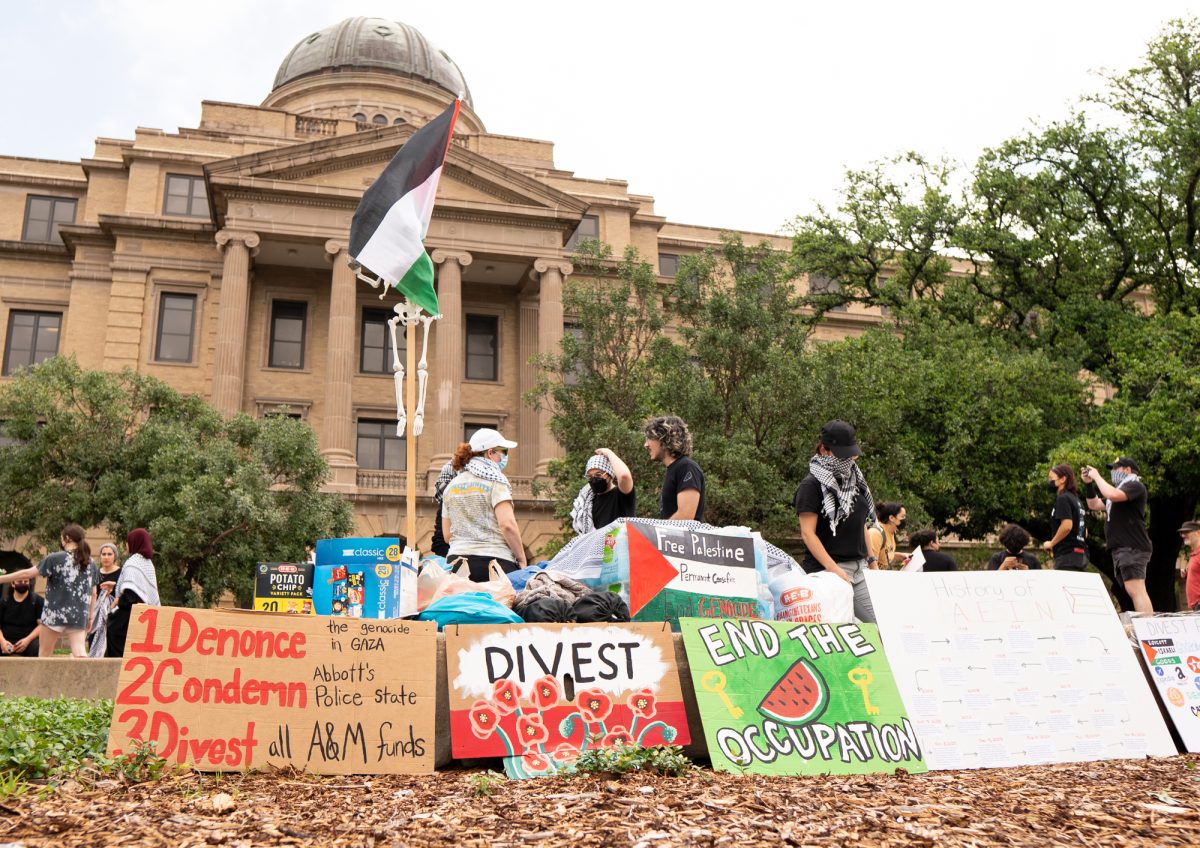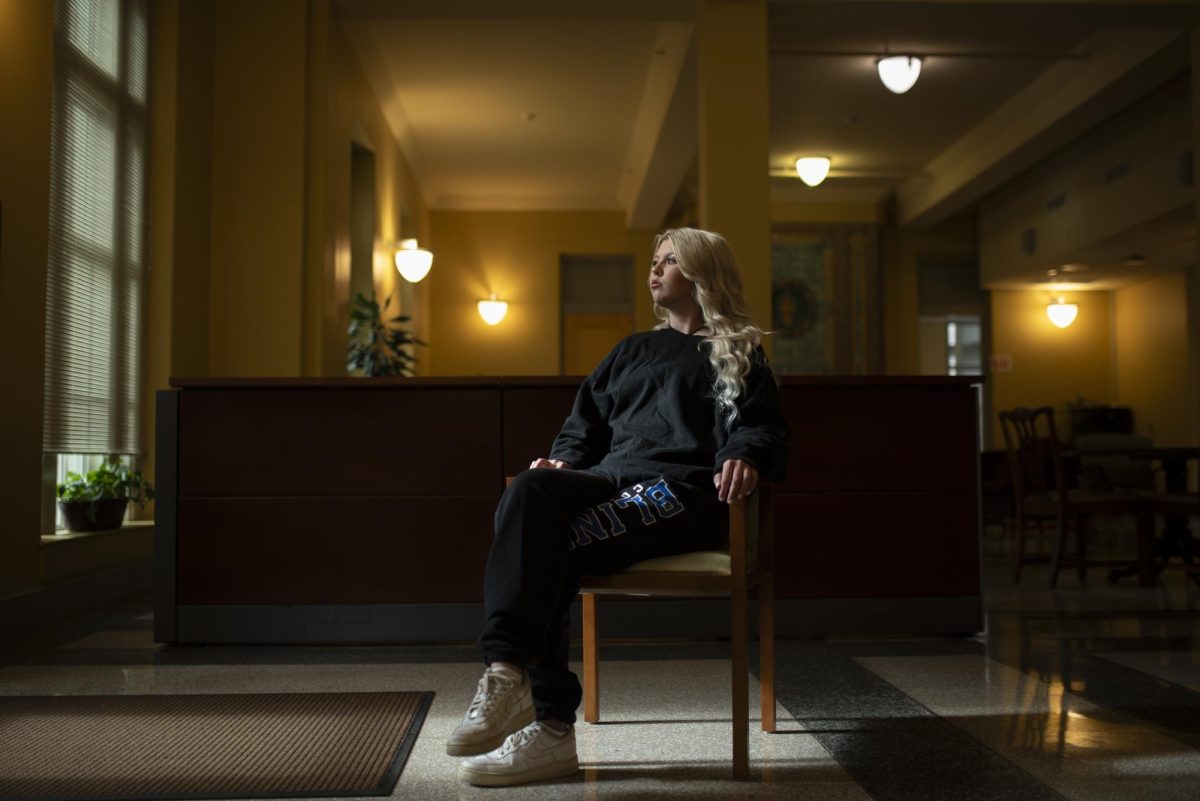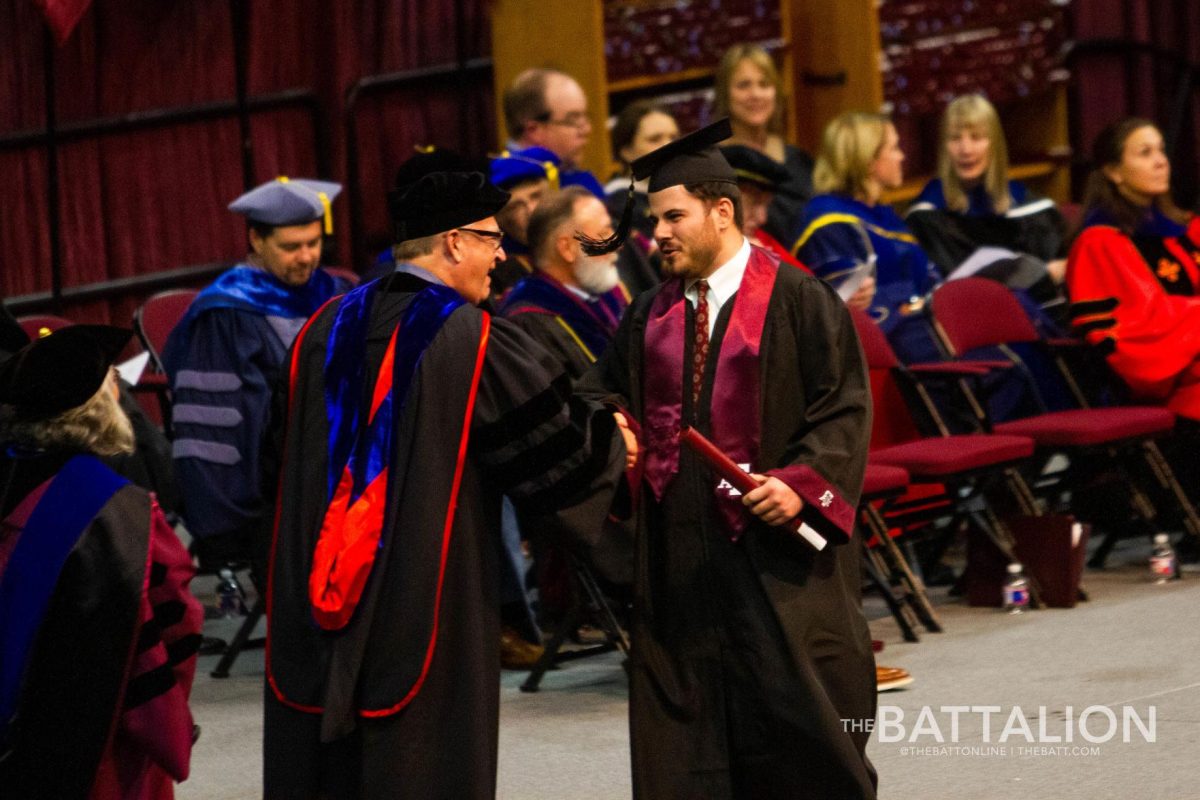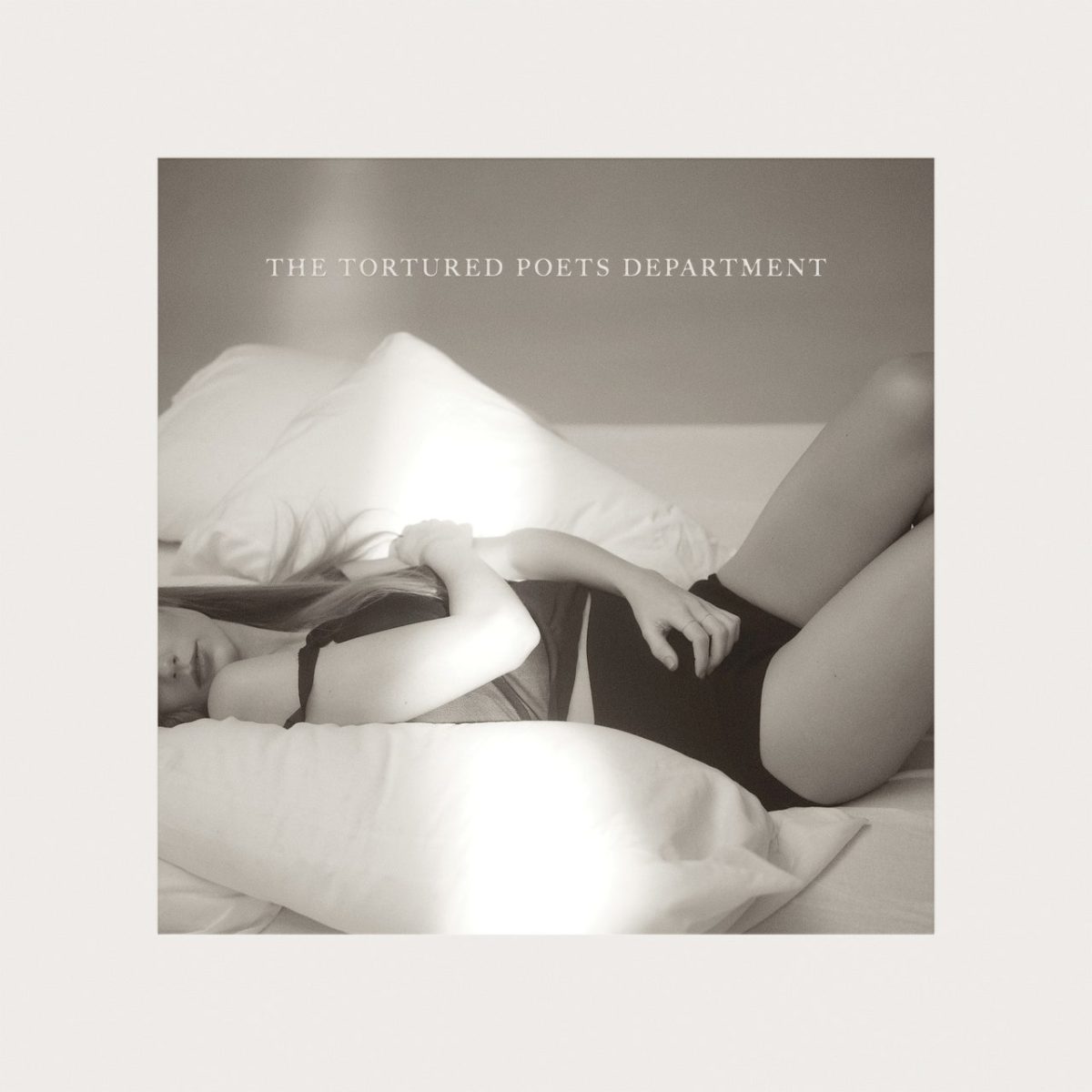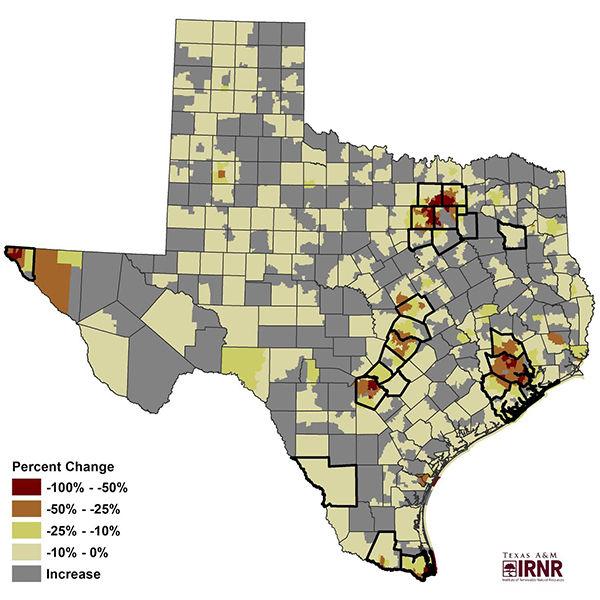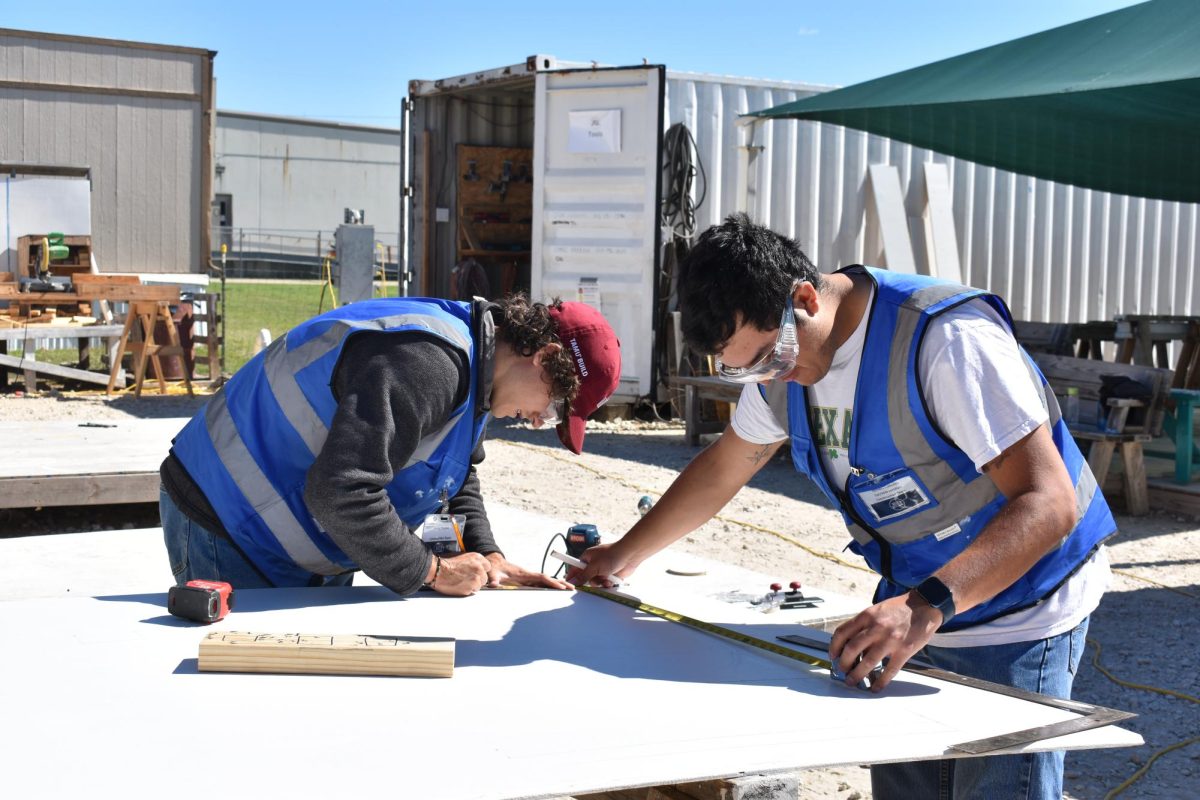A Texas A&M institute study revealed urbanization has led to the loss of nearly 1.1 million acres of privately owned Texas farms, ranches and forests between 1997 and 2012.
Land conversion at such a rate will have an impact on food supply and commodities produced from agricultural lands, said Todd Snelgrove, associate director of the Texas A&M Institute of Renewable Natural Resources.
“Along with that comes the loss of ecosystem services, wildlife habitats and clean air and water,” Snelgrove said.
Increases in conversion and fragmentation make it difficult for the land to remain economically viable, said Roel Lopez, interim director for Texas Water Resources Institute.
“140 acres is a breaking point,” Lopez said. “Any farm less than 140 acres is not economically viable. When you possess less than 140 acres, the average net return on the land goes into the negative, which makes it hard for a farmer or rancher to make a living.”
The conversion of land is typically the result of the fact that market values for land are increasing, said Blair Fitzsimons, chief executive officer of the Texas Agricultural Land Trust.
“Demand for land has caused the market value to increase,” Snelgrove said. “The population of Texas has increased from 19 million to 26 million over the last 15 years, with nearly 90 percent of Texans living in cities. More people in Texas means ever-increasing demand for places to live.”
This increase in market value causes farmers and ranchers to examine their financial situation, Fitzsimons said.
“The land becomes so valuable that a farmer or rancher looks at their balance sheet and is crazy not to sell their land for development,” Fitzsimons said.
One possible solution to the land conversion issue is a tool known as “conservation easement,” Fitzsimons said, which is when a farmer chooses to permanently protect his or her farm or ranch from conversion, meaning it can’t be developed for commercial purposes, and in doing so the farmer gets state and income tax benefits.
“This is a tool a lot of families have used to deal with rising market value for land,” Fitzsimons said.
Lopez said the biggest problem with turning rural land into land for commercial development is that once the land comes out of agricultural use, it cannot be converted back.
“Private land is a good filter and provider of clean and abundant water,” Lopez said. “If you lose that filter, you’ll eventually lose your water supply, air quality, recreational opportunities and more. These are things that benefit you and I but we don’t necessarily pay for it directly or even recognize it in some cases.”
While it is difficult to fight the dynamics of the market, students can attempt to help slow land conversion simply by raising awareness, Fitzsimons said.
“We can all, students included, help understand and communicate to increasingly urban audiences that agriculture is essential to our quality of life,” Fitzsimons said. “The more we can understand and advocate for policies, the better for all of us.”
It is important for students to be aware of what is being lost, Lopez said.
“What does losing 1,000 acres mean to me? It doesn’t keep me from living, showering or eating, but it does affect me,” Lopez said. “What happens 50 to 60 miles up river affects you whether you know it or not.”





